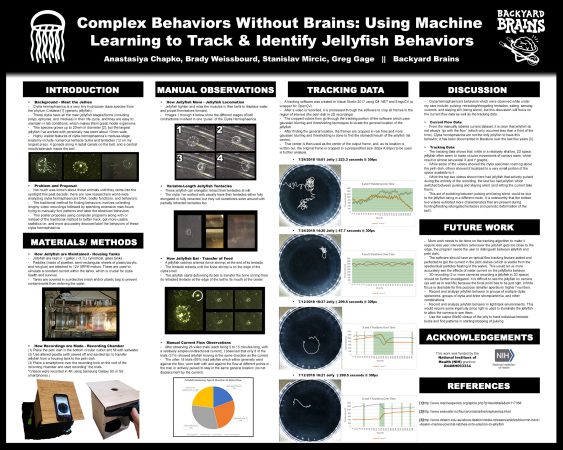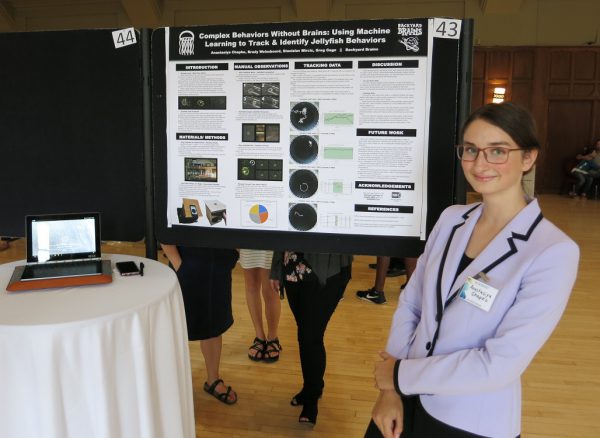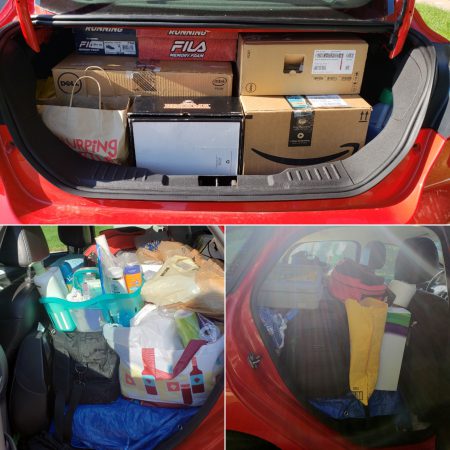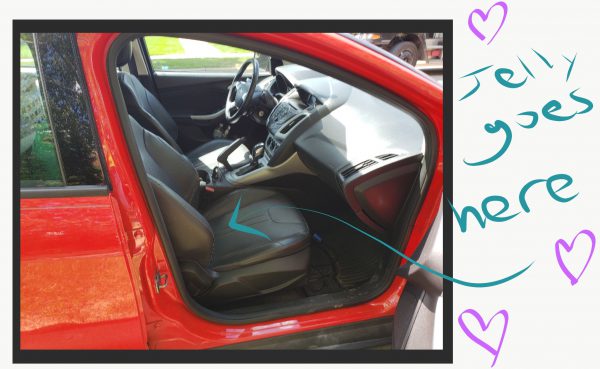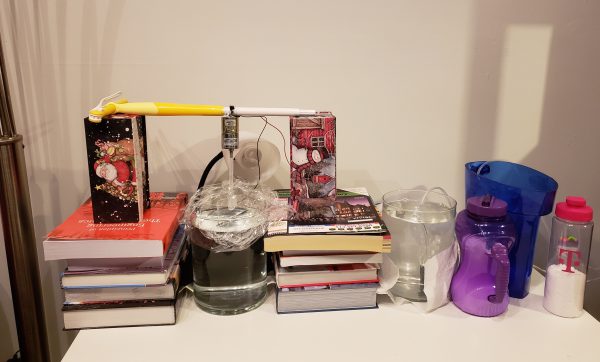Hello all! The summer fellowship is officially over, but it’s not quite the end of the line for the jellies and me! In this final(?) update to my blog series I’ll be recalling the findings I’ve made over this summer, showcasing the poster I presented at the UROP Symposium, sharing my road trip back home (with the jellies in tow!!!), and planning my post-fellowship jellyfish-based research!
Final Fellowship Findings:
I’ve learned a lot about clytia hemisphaerica over this fellowship. This ranges from their appearance and life stages (polyp, ephyrae, medusa) to their husbandry and maintenance needs (acceptable salt levels, daily and weekly water changes, feeding requirements). This newfound knowledge also includes their behaviors and abilities, like how they catch and eat prey or how they dart, zig-zag, and make circles in the water. I have collected a decent number of videos for my jellyfish dataset, and I’ve done some basic position tracking on most of that dataset, but unfortunately the fellowship was over before any rigorous analysis could be completed.
However, this is not the end! I will be dedicating time over the next few weeks to progressing my research by adding features to my jellyfish tracking/analysis software to get more usable stats on the videos, by analyzing jelly video stats using unsupervised machine learning for labeling behaviors, and by getting more raw footage of these wonderful jellies to add to the dataset! (But more on that later.)
Poster Presentation:
This first photo is of the poster I made for and presented at the UROP symposium. It gives a brief introduction on clytia hemisphaerica, explains how I created my dataset (video recordings), and shows what observations and findings were made.
This next photo shows the poster and me in action at the symposium!
I got to meet a lot of exciting people and shared endless amounts of unusual jellyfish facts with them. [Example fun fact: Did you know it’s been confirmed that some jellyfish (like the upside down jellyfish) sleep? This finding by researchers at Caltech (https://www.sciencemag.org/news/2017/09/you-don-t-need-brain-sleep-just-ask-jellyfish) was surprising since jellyfish don’t have brains or even a central nervous system, so sleep must be a more universal activity than previously thought.]
Jelly Road Trip:
The day came much too quickly – the day I had to leave Ann Arbor and go back home to Cincinnati. I spent 7 hours straight packing and loading the car with all the things I’d brought with me or accumulated during my stay.
There was a lot of stuff and it took up a lot of (hard to find) space in my compact-size sedan, but one spot remained clear: the passenger seat.
The passenger seat was reserved for the 2 remaining jellies! I got approval to take them home with me and continue my work in Cincinnati! After 220 miles of highway roads, the jellies finally got to see their new home (and I got to improvise a new DIY tank setup).
Now that the jellies are here, we can start on the post-fellowship jellyfish-based research plans!
Future Work:
Over the next few weeks, I plan to make more recordings of the jellyfish in a wider variety of situations. I’ll try changing environmental variables like lighting, current direction/intensity, salinity, and water temperature.
Some of the features I plan to add to the tracking/analysis software include optical flow options (to track the water current based on the dust particles visible in the videos), ellipse fitting options (to gauge when the jellyfish is actively pulsing), and multiple jelly support (for tracking 2 or more jellyfish at once).
Finally, the machine learning portion of this project will revolve around mostly unsupervised methods in the hopes that behaviors can be found with minimal bias and human error. Some options that were discussed include basic k means clustering as a start followed by other methods like compressing the layers of the neural network to force the algorithm to find patterns that effectively store the original data without losing any information.
This fellowship was a great experience and I’m very excited and grateful for the opportunity to bring my project home with me and continue my research.
